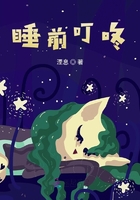"If we weren't Americans," explained Billy patiently, "we wouldn't give a damn whether you deserted or not. You're drowning and you don't know it, and we're throwing you a rope. Try to see it that way. We'll cut out the fact that you took an oath, and that you're breaking it. That's up to you.
We'll get down to results. When you reach home, if you can't tell why you left the army, the folks will darned soon guess.
And that will queer everything you've done. When you come to sell your stuff, it will queer you with the editors, queer you with the publishers. If they know you broke your word to the British army, how can they know you're keeping faith with them?
How can they believe anything you tell them? Every 'story' you write, every statement of yours will make a noise like a fake.
You won't come into court with clean hands. You'll be licked before you start.
"Of course, you're for the Allies. Well, all the Germans at home will fear that; and when you want to lecture on your 'Fifteen Months at the British Front,' they'll look up your record; and what will they do to you? This is what they'll do to you. When you've shown 'em your moving pictures and say, 'Does any gentleman in the audience want to ask a question?' a German agent will get up and say, 'Yes, I want to ask a question. Is it true that you deserted from the British army, and that if you return to it, they will shoot you?'"I was scared. I expected the lean and muscular Mr. Hamlin to fall on Billy, and fling him where he had flung the soggy uniform.
But instead he remained motionless, his arms pressed across his chest. His eyes, filled with anger and distress, returned to the Adriaticus.
"I'm sorry," muttered the Kid.
John rose and motioned to the door, and guiltily and only too gladly we escaped. John followed us into the hall. "Let me talk to him," he whispered. "The boat sails in an hour. Please don't come back until she's gone."We went to the moving picture palace next door, but I doubt if the thoughts of any of us were on the pictures. For after an hour, when from across the quay there came the long-drawn warning of a steamer's whistle, we nudged each other and rose and went out.
Not a hundred yards from us the propeller blades of the Adriaticus were slowly churning, and the rowboats were falling away from her sides.
"Good-bye, Mr. Hamlin," called Billy. "You had everything and you chucked it away. I can spell your finish. It's 'check' for yours."But when we entered our room, in the centre of it, under the bunch of electric lights, stood the deserter. He wore the water-logged uniform. The sun helmet was on his head.
"Good man!" shouted Billy.
He advanced, eagerly holding out his hand.
Mr. Hamlin brushed past him. At the door he turned and glared at us, even at John. He was not a good loser. "I hope you're satisfied," he snarled. He pointed at the four beds in a row. Ifelt guiltily conscious of them. At the moment they appeared so unnecessarily clean and warm and soft. The silk coverlets at the foot of each struck me as being disgracefully effeminate. They made me ashamed.
"I hope," said Mr. Hamlin, speaking slowly and picking his words, "when you turn into those beds to-night you'll think of me in the mud. I hope when you're having your five-course dinner and your champagne you'll remember my bully beef. I hope when a shell or Mr. Pneumonia gets me, you'll write a nice little sob story about the 'brave lads in the trenches.' "He looked at us, standing like schoolboys, sheepish, embarrassed, and silent, and then threw open the door. "I hope," he added, "you all choke!"With an unconvincing imitation of the college chum manner, John cleared his throat and said: "Don't forget, Fred, if there's anything I can do--"Hamlin stood in the doorway smiling at us.
"There's something you can all do," he said.
"Yes?" asked John heartily.
"You can all go to hell!" said Mr. Hamlin.
We heard the door slam, and his hobnailed boots pounding down the stairs. No one spoke. Instead, in unhappy silence, we stood staring at the floor. Where the uniform had lain was a pool of mud and melted snow and the darker stains of stale blood.
End of the Project Gutenberg etext of The Lost Road The Project Gutenberg Etext of Robin Hood by J. Walker McSpadden ******This file should be named 1rbnh10.txt or 1rbnh10.zip******Corrected EDITIONS of our etexts get a new NUMBER, 1rbnh11.txt VERSIONS based on separate sources get new LETTER, 1rbnh10a.txt This etext was prepared by Joseph S. Miller, Pensacola, FL and Embry-Riddle Aeronautical University Library, Prescott, AZ.
Project Gutenberg Etexts are usually created from multiple editions, all of which are in the Public Domain in the United States, unless a copyright notice is included. Therefore, we usually do NOT keep any of these books in compliance with any particular paper edition.
We are now trying to release all our books one month in advance of the official release dates, leaving time for better editing.
Please note: neither this list nor its contents are final till midnight of the last day of the month of any such announcement.
The official release date of all Project Gutenberg Etexts is at Midnight, Central Time, of the last day of the stated month. Apreliminary version may often be posted for suggestion, comment and editing by those who wish to do so. To be sure you have an up to date first edition [xxxxx10x.xxx] please check file sizes in the first week of the next month. Since our ftp program has a bug in it that scrambles the date [tried to fix and failed] a look at the file size will have to do, but we will try to see a new copy has at least one byte more or less.












